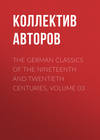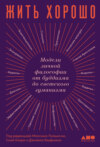Czytaj książkę: «The German Classics of the Nineteenth and Twentieth Centuries, Volume 03»
THE LIFE OF SCHILLER
BY CALVIN THOMAS, LL.D
Professor of Germanic Languages and Literatures, Columbia University
He kept the faith. The ardent poet-soul,
Once thrilled to madness by the fiery gleam
Of Freedom glimpsed afar in youthful dream,
Henceforth was true as needle to the pole.
The vision he had caught remained the goal
Of manhood's aspiration and the theme
Of those high luminous musings that redeem
Our souls from bondage to the general dole
Of trivial existence. Calm and free
He faced the Sphinx, nor ever knew dismay,
Nor bowed to externalities the knee,
Nor took a guerdon from the fleeting day;
But dwelt on earth in that eternity
Where Truth and Beauty shine with blended ray.[2]
Friedrich Schiller, the greatest of German dramatic poets, was born November 10, 1759, at Marbach in Swabia. His father was an officer in the army which the Duke of Württemberg sent out to fight the Prussians in the Seven Years' War. Of his mother, whose maiden name was Dorothea Kodweis, not much is known. She was a devout woman who lived in the cares and duties of a household that sometimes felt the pinch of poverty. After the war the family lived a while at the village of Lorch, where Captain Schiller was employed as recruiting officer. From there they moved, in 1766, to Ludwigsburg, where the extravagant duke Karl Eugen had taken up his residence and was bent on creating a sort of Swabian Versailles. Here little Fritz went to school and was sometimes taken to the gorgeous ducal opera, where he got his first notions of scenic illusion. The hope of his boyhood was to become a preacher, but this pious aspiration was brought to naught by the offer of free tuition in an academy which the duke had started at his Castle Solitude near Stuttgart.
This academy was Schiller's world from his fourteenth to his twenty-first year. It was an educational experiment conceived in a rather liberal spirit as a training-school for public service. At first the duke had the boys taught under his own eye at Castle Solitude, where they were subjected to a strict military discipline. There being no provision for the study of divinity, Schiller was put into law, with the result that he floundered badly for two years. In 1775 the institution was augmented by a faculty of medicine and transferred to Stuttgart, where it was destined to a short-lived career under the name of the Karlschule. Schiller gladly availed himself of the permission to change from law to medicine, which he thought would be more in harmony with his temperament and literary ambitions. And so it proved. As a student of medicine he made himself at home in the doctrines and practices of the day, and for several years after he left school he thought now and then of returning to the profession of medicine.
For posterity the salient fact of his long connection with the Karlschule is that he was there converted into a fiery radical and a banner-bearer of the literary revolution. Just how it came about is hard to explain in detail. The school was designed to produce docile and contented members of the social order; in him it bred up a savage and relentless critic of that order. The result may be ascribed partly, no doubt, to the natural reaction of an ardent, liberty-loving temperament against a system of rigid discipline and petty espionage. The élèves—French was the official language of the school—were not supposed to read dangerous books, and their rooms were often searched for contraband literature. But they easily found ways to evade the rule and enjoy the savor of forbidden fruit.
So it was with Schiller: he read Rousseau more or less, the early works of Goethe, Lessing's Emilia Galotti, and plays by Klinger, Leisewitz, Lenz and Wagner—all more or less revolutionary in spirit. He also made the acquaintance of Shakespeare and steeped himself in the spirit of antique heroism as he found it in Plutarch.
Perhaps this reading would have made a radical of him even if he had just then been enjoying the normal freedom of a German university student. Be that as it may, the time came—it was about 1777—when the young Schiller, faithfully pursuing his medical course and doing loyal birthday orations in praise of the duke or the duke's mistress, was not exactly what he seemed to be. Underneath the calm exterior there was a soul on fire with revolutionary passion.
It was mainly in 1780—his last year in the Karlschule—that Schiller wrote The Robbers, altogether the loudest explosion of the Storm and Stress. The hero, Karl Moor, was conceived as a "sublime criminal." Deceived by the machinations of his villainous brother Franz, he becomes the captain of a band of outlaws and attempts by murder, arson and robbery to right the wrongs of the social order. For a while he believes that he is doing a noble work. When he learns how he has been deluded he gives himself up to the law. The effect of the play is that of tremendous power unchecked by any of the restraints of art. The plot is incredible, the language tense with turbulent passion, and the characters are extravagantly overdrawn. But the genius of the born dramatist is there. It is all vividly seen and powerfully bodied forth. What is more important, the play marks the birth of a new type—the tragedy of fanaticism. We are left at the end with a heightened feeling for the mysterious tangle of human destiny which makes it possible for a really noble nature such as Karl Moor to go thus disastrously wrong.
Toward the end of 1780 Schiller left the academy and was made doctor to a regiment of soldiers consisting largely of invalids. He dosed them with drastic medicines according to his light, but the service was disagreeable and the pay very small. To make a stir in the world he borrowed money and published The Robbers as a book for the reader, with a preface in which he spoke rather slightingly of the theatre. The book came out in the spring of 1781—with a rampant lion and the motto in Tirannos on the title-page. Ere long it came to the attention of Dalberg, director of the theatre at Mannheim, who saw its dramatic qualities and requested its author to revise it for the stage. This Schiller readily consented to do. To please Dalberg he set the action back from the eighteenth to the sixteenth century and made many minor changes. The revised play was performed at Mannheim on January 12, 1782, with ever-memorable success. The audience, assembled from far and near, went wild with enthusiasm. No such triumph had been achieved before on a German stage. The author himself saw the performance, having come over from Stuttgart without leave of absence. For this breach of discipline, or rather for a repetition of the offense in May, he was sent to the guardhouse for a fortnight and forbidden to write any more plays. The consequence was a clandestine flight from a situation that had become intolerable. In September, 1782, he escaped from Stuttgart with his loyal friend Streicher and took his way northward toward the Palatinate. He had set his hopes on finding employment in Mannheim.
Before leaving his native Swabia he had virtually completed a second play dealing with the conspiracy of Count Fiesco at Genoa in the year 1547. He had also won his spurs as a poet and a critic. His Anthology for 1782 contains a large number of short poems, some of them evincing a rare talent for dramatic story-telling, others foreshadowing the imaginative sweep and the warmth of feeling which characterize the best poetic work of the later Schiller. Such, notably, are the poems to Laura, in which the lover's raptures are linked with the law of gravitation and the preestablished harmony of the world. He also contributed several papers to the Württemberg Repertorium, especially a review of The Robbers in which, dissecting his own child with remorseless impartiality, he anticipated nearly everything that critics were destined to urge against the play during the next hundred years. Having left his post of duty and being a military officer, Schiller was technically a deserter and had reason to fear pursuit and arrest. At Mannheim his affairs went badly. The politic Dalberg was not eager to befriend a youth who had offended the powerful Duke of Württemberg; so Fiesco was rejected and its author came into dire straits. Toward the close of the year he found a welcome refuge at Bauerbach, where a house was put at his disposal by his friend Frau von Wolzogen. Here he remained several months, occupied mainly with a new play which came to be known as Cabal and Love. He also sketched a historical tragedy, Don Carlos, being led to the subject by his reading of St. Réal's historical novel Don Carlos. During the first part of his stay at Bauerbach Schiller went by the name of Dr. Ritter and wrote purposely misleading letters as to his intended movements. By the summer of 1783, however, it had become apparent that the Duke of Württemberg was not going to make trouble. Relieved of anxiety on this score, and not having had very good success of late with his theatre, Dalberg reopened negotiations with Schiller, who was easily persuaded to emerge from his hiding-place and become theatre-poet at Mannheim under contract for one year.
During this year at Mannheim Fiesco and Cabal and Love were put on the stage and published. The former is a quasi-historical tragedy of intriguing ambition, ending—in the original version—with the death of Fiesco at the hands of the fanatical republican Verrina. While there is much to admire in its abounding vigor and its picturesque details, Fiesco lacks artistic finality and is the least interesting of Schiller's early plays. Much more important is Cabal and Love, a domestic tragedy that has held the stage to this day and is generally regarded as the best of its kind in the eighteenth-century German drama. Class conflict is the tragic element. A maid of low degree and her high-minded, aristocratic lover are done to death by a miserable court intrigue. Far more than in The Robbers Schiller was here writing with his eye on the facts. Much Württemberg history is thinly disguised in this drastic comment on the crimes, follies and banalities of German court life under the Old Régime.
Notwithstanding his success as a playwright and his receipt of the honorable title of Councilor from the Duke of Weimar, Schiller was unhappy at Mannheim. Sickness, debt and loneliness oppressed him, making creative work well-nigh impossible. In June, 1784, when the sky was looking very black, he received a heartening letter from a quartet of unknown admirers in Leipzig, one of whom was Gottfried Körner. Schiller was deeply touched. In his hunger for sympathy and friendship he resolved to leave Mannheim and seek out these good people who had shown such a kindly interest in him. Fortunately Körner was a man of some means and was able to help not only with words but with cash. So it came about that in the spring of 1785 Schiller forsook Mannheim, which had become as a prison to him, and went to Leipzig. Thence, after a short sojourn, he followed Körner to Dresden. The relation between the two men developed into a warm and mutually inspiring friendship. A feeling of jubilant happiness took possession of Schiller and soon found expression in the Song to Joy, wherein a kiss of love and sympathy is offered to all mankind.
During his two years' sojourn in Dresden Schiller was mainly occupied with the editing of a magazine, the Thalia, and with the completion of Don Carlos, the first of his plays in blank verse. Hitherto he had written with his eye on the stage, and in the savage spirit of the Storm and Stress. Now, however, the higher ambition of the dramatic poet began to assert itself. His views of life were changing, and his nature craved a freer and nobler self-expression than was possible in the "three hours' traffic of the stage." He had begun Don Carlos at Bauerbach, intending to make it a love-tragedy in a royal household and incidentally to scourge the Spanish inquisition. Little by little, however, the centre of his interest shifted from the lovesick Carlos to the quixotic dreamer Posa, and the result was that the love-tragedy gradually grew into a tragedy of political idealism with Posa for its hero. As finally completed in the summer of 1787, Don Carlos had twice the length of an ordinary stage-play and, withal, a certain lack of artistic unity. But its sonorous verse, its fine phrasing of large ideas, and its noble dignity of style settled forever the question of Schiller's power as a dramatic poet. The third act especially is instinct with the best idealism of the eighteenth century.
After Don Carlos Schiller wrote no more plays for some nine years, being occupied in the interval chiefly with history and philosophy. His dramatic work had interested him more especially in the sixteenth century. At Dresden he began to read history with great avidity and found it very appetizing. What he most cared for, evidently, was not the annals of warfare or the growth of institutions, but the psychology of the great man. He was an ardent lover of freedom, both political and intellectual, and took keen delight in tracing its progress. On the other hand, play-writing had its disadvantages. Thus far it had brought him more of notoriety than of solid fame, and his income was so small that he was dependent on Körner's generosity. To escape from this irksome position he decided to try his fortune in Thuringia. Going over to Weimar, in the summer of 1787, he was well received by Herder and Wieland—Goethe was just then in Italy—and presently he settled down to write a history of the Dutch Rebellion. His plan looked forward to six volumes, but only one was ever written. It was published in 1788 under the title of The Defection of the Netherlands and led to its author's appointment as unsalaried professor of history at the University of Jena. He began to lecture in the spring of 1789.
Meanwhile he had taken up the study of the Greek poets and found them very edifying and sanative—just the influence that he needed to clarify his judgment and correct his earlier vagaries of taste. He was fascinated by the Odyssey and in a mood of fleeting enthusiasm he resolved to read nothing but the ancients for the next two years. He translated the Iphigenia in Aulis of Euripides and a part of The Phenician Women. Out of this newborn ardor grew two important poems, The Gods of Greece and The Artists; the former an elegy on the decay of Greek polytheism conceived as a loss of beauty to the world, the latter a philosophic retrospect of human history wherein the evolutionary function of art is glorified. At the same time he revived the dormant Thalia and used its columns for the continued publication of The Ghost-seer, a pot-boiling novel which he had begun at Dresden. It is Schiller's one serious attempt at prose fiction. His initial purpose was to describe an elaborate and fine-spun intrigue, devised by mysterious agents of the Church of Rome, for the winning over of a Protestant German prince. The story begins in a promising way, and the later portions contain fine passages of narrative and character-drawing. But its author presently began to feel that it was unworthy of him and left it unfinished.
Begas]
On the 22d of February, 1790, Schiller was married to Lotte von Lengefeld, with whom he lived most happily the rest of his days. His letters of this period tell of a quiet joy such as he had not known before. And then, suddenly, his fair prospects were clouded by the disastrous breakdown of his health. An attack of pneumonia in the winter of 1790-1791 came near to a fatal ending, and hardly had he recovered from that before he was prostrated by a second illness worse than the first. He bade farewell to his friends, and the report went abroad that he was dead. After a while he rallied, but never again to be strong and well. From this time forth he must be thought of as a semi-invalid, doomed to a very cautious mode of living and expectant of an early death. It was to be a fourteen years' battle between a heroic soul and an ailing body.
For a while, owing to the forced cessation of the literary work on which his small income depended, he was in great distress for lack of money. His wife, while of noble family, had brought nothing but herself to the marriage partnership. And then, just as in the dark days at Mannheim in 1784, help seemed to come from the clouds. Two Danish noblemen, ardent admirers quite unknown to him personally, heard of his painful situation and offered him a pension of a thousand thalers a year for three years. No conditions whatever were attached to the gift; he was simply to follow his inclination, free from all anxiety about a livelihood. Without hesitation he accepted the gift and thus found himself, for the first time in his life, really free to do as he chose. What he chose was to use his freedom for a grapple with Kant's philosophy. Today this seems a strange choice for a sick poet, but let Schiller himself explain what lay in his mind. He wrote to Körner:
"It is precisely for the sake of artistic creation that I wish to philosophize. Criticism must repair the damage it has done me. And it has done me great damage indeed; for I miss in myself these many years that boldness, that living fire, that was mine before I knew a rule. Now I see myself in the act of creating and fashioning; I observe the play of inspiration, and my imagination works less freely, since it is conscious of being watched. But if I once reach the point where artistic procedure becomes natural, like education for the well-nurtured man, then my fancy will get back its old freedom and know no bounds but those of its own making."
From these words we understand the nature of Schiller's enterprise—he wished to fathom the laws of beauty. It seemed to him that beauty could not be altogether a matter of changing taste, opinion, and fashion; that somehow or other it must be grounded in eternal laws either of the external world or of human nature. He felt, too, that a knowledge of these laws, could it once become second nature, would be very helpful to him as a dramatic poet. Whether he was right in so thinking is a question too large to be discussed here, nor can we follow him in the details of his esthetic speculation. The subject is too abstruse to be dispatched in a few words. Suffice it to say that a number of minor papers, the most important being On Winsomeness and Dignity (Über Anmut and Würde) and On the Sublime, prepared the way for a more popular exposition of his views in the Letters on Esthetic Education and in the memorable essay On Naïve and Sentimental Poetry, which deserves to be called, next to Lessing's Laocoon, the weightiest critical essay of the eighteenth century. The Letters contain a ripe and pleasing statement of Schiller's philosophy in its relation to the culture-problems of his epoch.
Along with these philosophic studies Schiller found time for much work more closely related to his professorship of history. To say nothing of his minor historical writings, he completed, in 1793, his History of the Thirty Years' War. It appeared in successive numbers of Göschen's Ladies' Calendar, a fact which in itself indicates that it was not conceived and should not be judged as a monument of research. The aim was to tell the story of the great war in a readable style. And in this Schiller succeeded, especially in the parts relating to his hero, the Swedish king Gustav Adolf. Over Schiller's merit as a historian there has been much debate, and good critics have caviled at his sharp contrasts and his lack of care in matters of detail. But the great fact remains that the Defection of the Netherlands and the Thirty Years' War are the earliest historical classics in the German language. Schiller was the first German to make literature out of history.
The year 1794 brought about a closer relation between Schiller and Goethe, an event of prime moment in the lives of both. On Goethe's return from Italy, in the summer of 1788, Schiller was introduced to him, but the meeting had no immediate consequences. In fact, Schiller had quietly made up his mind not to like the man whom, for a whole year, he had heard constantly lauded by the Weimar circle. He thought of Goethe as a proud, self-centred son of fortune, with whom friendship would be impossible. Goethe, on the other hand, was not drawn to the author of The Robbers. He looked on the popularity of the detestable play as a shocking evidence of depraved public taste and was not aware how its author had changed since writing it. So it came about that, for some six years, the two men lived as neighbors in space but strangers in the spirit. At last, however, an accidental meeting in Jena led to an interchange of views and prepared the way for the most memorable of literary friendships.
By this time Schiller had undertaken the editorship of a new literary magazine to be called Die Horen, which was to be financed by the enterprising publisher Cotta in Stuttgart. The plan was that it should eclipse all previous undertakings of its kind. But it was to eschew politics. Germany was just then agitated by the fierce passions of the revolutionary epoch, and this excitement was regarded by Schiller as ominous for the nation. There was need of esthetic education. So he proposed to keep the Horen clear of politics and try to divert the minds of men into the serener regions of letters and art. To Goethe, who also hated the Revolution, this was a highly acceptable program. So he readily undertook to write for the Horen, and thus he and Schiller soon became linked together in the public mind as allied champions of a cause. It is for this reason that the Germans are wont to call them the Dioscuri.
By way of signalizing their community of interest the Dioscuri presently began to write satirical distichs at the expense of men and tendencies that they did not like. For example:
Gentlemen, keep your seats! for the curs but covet your places,
Elegant places to hear all the other dogs bark.
The making of these more or less caustic epigrams amused them. Sometimes one would suggest the topic and the other write the distich; again, one would do the hexameter, the other the pentameter. They agreed that neither should ever claim separate property in the Xenia, as they were called. The number grew apace, until it reached nearly a thousand. About half the number on hand were published in 1797 in Schiller's Musenalmanach and had the effect of setting all Germany agog with curiosity, rage or solemn glee. Some of those hit replied in kind or in vicious attacks, and for a little while there was great excitement. But having discharged their broadside Goethe and Schiller did not further pursue the ignoble warfare. They wisely came to the conclusion that the best way to elevate the public taste was not to assail the bad in mordant personal epigrams, but to exemplify the good in creative work.
After his nine years of fruitful wandering in other fields Schiller returned at last, in 1796, to dramatic poetry. Once more it came in his way to write for the stage, since Goethe was now director of the Weimar theatre. After some hesitation between Wallenstein and The Knights of Malta, both of which had long haunted his thoughts, he decided in favor of the former. It occupied him for three years and finally left his hands as a long affair in three parts. Yet it is not a trilogy in the proper sense, but a play in ten acts, preceded by a dramatic prelude. At first Schiller found the material refractory. The actual Wallenstein had never exhibited truly heroic qualities of any kind, and his history involved only the cold passions of ambition, envy, and vindictiveness. Whether he was really guilty of treason was a moot question which admitted of no partisan treatment. But Schiller's genius triumphed splendidly over the difficulties inherent in the subject. In the Camp we get a picturesque view of the motley soldatesca which was the basis of Wallenstein's power and prestige. In The Piccolomini we see the nature of the dangerous game he is playing, and in Wallenstein's Death the unheroic hero becomes very impressive in his final discomfiture and his pitiable taking-off. The love-tragedy of Max and Thekla casts a mellow light of romance over the otherwise austere political action.
EDUCATED]
"THE ROBBERS," "FIESCO," AND "LOVE AND INTRIGUE" WERE FIRST PLAYED]
During the years 1795-1800 Schiller wrote a large number of short poems in which he gave expression to his matured philosophy of life. His best ballads also belong to this period. Pure song he did not often attempt, his philosophic bent predisposing him to what the Germans call the lyric of thought. Perhaps his invalidism had something to do with it; at any rate the total number of his singable lyrics, such as The Maiden's Lament, is but small. As a poet of reflection he is at his best in The Ideal and Life, The Walk, The Eleusinian Festival, and the more popular Song of the Bell. The first-named of these four, at first called The Realm of Shades, is a masterpiece of high thinking, charged with warm emotion and bodied forth in gorgeous imagery. Its doctrine is that only by taking refuge in the realm of the Ideal can we escape from the tyranny of the flesh, the bondage of Nature's law, the misery of struggle and defeat. Yet it is not a doctrine of quietism that is here preached, as if inner peace were the supreme thing in life, but rather one of hopeful endeavor. The Walk, one of the finest elegies in the German language, is a pensive retrospect of the origins of civilization, loving contemplation of Nature giving rise to reflections on man and his estate. The Song of the Bell, probably the best known of all Schiller's poems, gives expression to his feeling for the dignity of labor and for the poetry of man's social life. Perhaps we may say that the heart of his message is found in this stanza of The Words of Illusion:
And so, noble soul, forget not the law,
And to the true faith be leal;
What ear never heard and eye never saw,
The Beautiful, the True, they are real.
Look not without, as the fool may do;
It is in thee and ever created anew.
In 1797—Hermann and Dorothea was just then under way—Goethe and Schiller interchanged views by letter on the subject of epic poetry in general and the ballad in particular. As they had both written ballads in their youth, it was but natural that they should be led to fresh experiments with the species. So they both began to make ballads for next year's Musenalmanach. Schiller contributed five, among them the famous Diver and The Cranes of Ibycus. In after years he wrote several more, of which the best, perhaps, are The Pledge, a stirring version of the Damon and Pythias story, and The Battle with the Dragon, which, however, was called a romanza instead of a ballad. The interest of all these poems turns mainly, of course, on the story, but also, in no small degree, on the splendid art which the poet displays. They are quite unlike any earlier German ballads, owing nothing to the folk-song and making no use of the uncanny, the gruesome, or the supernatural. There is no mystery in them, no resort to verbal tricks such as Bürger had employed in Lenore. The subjects are not derived from German folk-lore, but from Greek legend or medieval romance. Their great merit is the strong and vivid, yet always noble, style with which the details are set forth.
We come back now to the province of art in which Schiller himself felt that his strength lay, and to which he devoted nearly all his strength during his remaining years. The very successful performance of the complete Wallenstein in the spring of 1799 added greatly to his prestige, for discerning judges could see that something extraordinary had been achieved. Weimar had by this time become the acknowledged centre of German letters, and its modest little theatre now took on fresh glory. Schiller had made himself very useful as a translator and adapter, and Goethe was disposed to lean heavily on his friend's superior knowledge of stage-craft. In order to be nearer to the theatre and its director, Schiller moved over to Weimar in December, 1799, and took up his abode in what is now called the Schillerstrasse. He was already working at Mary Stuart, which was finished the following spring and first played on June 14, 1800.
In Mary Stuart, as in Wallenstein, Schiller focused his light on a famous personage who was the subject of passionate controversy. But of course he did not wish to make a Catholic play, or a Protestant play, or to have its effect dependent in any way on the spectator's pre-assumed attitude toward the purely political questions involved. So he decided to omit Mary's trial and to let the curtain rise on her as a prisoner waiting for the verdict of her judges. This meant, however, according to his conception of the tragic art, a pathetic rather than a tragic situation; for the queen's fate would be a foregone conclusion, and she could do nothing to avert it. To give her the semblance of a tragic guilt he resorted to three unhistorical inventions: First, an attempt to escape, with resulting complicity in the act of the murderous Catholic fanatic Mortimer; second, a putative love on the part of Mary for Leicester, who would use his great influence to bring about a personal interview between her and Elizabeth; and, finally, the meeting of the two queens, in which Mary's long pent-up passion would get the better of her discretion and betray her into a mortal insult of her rival. In reality, however, the meeting of the two queens, while theatrically very effective, is not the true climax of the play. That comes when Mary conquers her rebellious spirit and accepts her ignominious fate as a divinely appointed expiation for long-past sins. The play thus becomes a tragedy of moral self-conquest in the presence of an undeserved death.




















